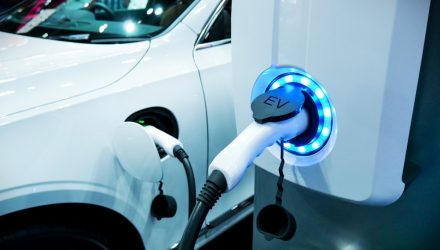It’s been a long road, with hard lessons learned along the way for Robert Joseph (RJ) Scaringe, CEO of Rivian, but the electric vehicle manufacturer believes that the macro-dynamics have never been better for his company and the industry and that Rivian will stand apart from Tesla in the years to come, reports Financial Times.
Scaringe’s focus has always been on finding a way to reduce carbon footprints; his initial efforts within EVs focused on creating a sports car as the focus for the brand that could then branch out, much as Tesla has done. However, after two years of effort, Scaringe decided to get back to basics and angle for what really was at the root of EV conversion for him, maximizing the impact; enter the idea of an electric pick-up truck.
“It’s the most popular segment in the United States,” Scaringe says about pick-ups. “It’s the least efficient vehicle on the road. It’s the one that everyone tells us we’re crazy to try to do, so let’s go prove them otherwise. And in the best case, we’ve built a business on it. In the worst case, we’ve proved to the existing [manufacturers]to see it differently.”
Rivian debuted with a blockbuster IPO in November 2021, raising $13.7 billion, and saw its stocks rise for a time, but a series of setbacks have since caused prices to fall: these include the miscommunication around the retirement of its former COO, the choice to raise prices on all vehicles, which included pre-orders, and then the very rapid backing down and price reversion for pre-orders, supply chain shortages, and more.
One of the many blue-chip backers of Rivian has been Ford, although the companies have since parted ways commercially but remain tied financially. Scaringe says the split has been a mutual one and allowed Ford to gain desired insight into an EV start-up that wasn’t having to worry with the conversion from fossil fuel reliant models.
“The fact that we’ve helped accelerate Ford, and the fact that we’ve helped spur interest in electric trucks, that’s awesome. It’s like we’ve had an impact. The world is going to electrify faster because of [our]actions as a company.”
On the horizon, Scaringe sees an excellent opportunity for Rivian. There were initial concerns when Tesla announced that they would be producing their own electric pick-up, but since seeing the model, Scaringe believes that the overlap between the two companies when it comes to EV trucks will be very small.
Demand for EVs has soared in the U.S. and globally, particularly in the last year, as more companies have begun to offer EV options for consumers. Rivian, in particular, has seen skyrocketing demand for its pick-up truck, the R1T, and the SUV model, the R1S.
“You have demand that seems unstoppable,” Scaringe says. “It’s sort of staggering how much demand there is for electric vehicles, and specifically for our vehicles.”
Investing in Rivian with KARS
For investors looking to capture the potential growth of major EV producers globally, the KraneShares Electric Vehicles and Future Mobility ETF (NYSE: KARS) offers a good solution.
KARS invests in many familiar car companies such as Rivian, Tesla, Ford, Mercedes-Benz, GM, BMW, and others and major Chinese EV manufacturers such as Xpeng, Nio, and BYD, some of the biggest companies in the global electric vehicle industry.
KARS measures the performance of the Bloomberg Electric Vehicles Index, which tracks the industry holistically, including exposure to electric vehicle manufacturers, electric vehicle components, batteries, hydrogen fuel cells, and the raw materials utilized in the synthesis of producing parts for electric vehicles.
The index has strict qualification criteria. Companies must be part of the Bloomberg World Equity Aggregate Index, have a minimum free-float market cap of $500 million, and have a 90-day average daily traded value of $5 million.
The ETF has an expense ratio of 0.70%.
For more news, information, and strategy, visit the Climate Insights Channel.

